The Conservative party’s biggest donor, the telecoms giant Lycamobile, has been raided by French police on suspicion of money laundering and tax fraud, BuzzFeed News can reveal.
Nineteen people were arrested in Paris last week and nine of them were charged on Friday, including Lycamobile’s general manager in France, Alain Jochimek.
The investigation was launched in the wake of revelations by BuzzFeed News last year that the international telecoms group employs three cash couriers to drop rucksacks stuffed with hundreds of thousands of pounds twice a day at Post Offices scattered across London.
Almost €1 million was seized in raids on Lycamobile’s Paris headquarters and a series of residential and business addresses across the city, and the group's French bank accounts have been frozen.
Among those charged along with Jochimek were cash collectors working for the company, officers of smaller companies that allegedly made illicit payments into Lyca’s accounts, and a couple suspected of acting as conduits to criminal networks.
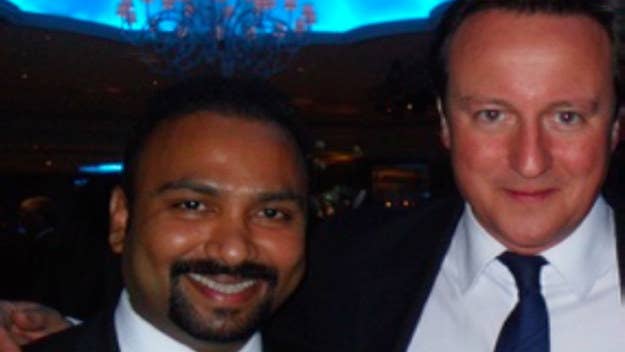
The Conservative party has accepted donations of more than £2.2 million from Lycamobile. Its Sri Lankan-born owner, Subaskaran Allirajah, is a member of the exclusive Leader’s Group for top donors and has dined privately with the prime minister or members of his cabinet twice in the past six months. He is also close to Boris Johnson after bankrolling his London mayoral campaign.
“75 million euros which could have come from various networks laundering profits from crime.”
The French authorities have identified payments into Lyca’s accounts from “shell” companies suspected of acting as fronts for “various networks laundering profits from crime” in intelligence documents compiled by the country’s financial crime unit.
The charges brought in a Paris court on Friday relate to alleged illicit transactions of €17 million but documents reveal the French authorities suspect the true total is much larger.
BuzzFeed News has visited 19 companies that allegedly funnelled tens of millions of euros into Lycamobile’s French accounts and found that all but one were registered at PO boxes, vacant offices, derelict buildings, or a construction site. At none of these locations was it actually possible to buy any Lyca products.
A source close to the investigation told BuzzFeed News that prosecutors have not established the origin of the funds and Lycamobile’s explanation for the payments is not yet known.
Lycamobile did not respond to detailed questions from BuzzFeed News before this article was published. But in a letter sent several days later, its French lawyers strongly denied all the allegations and threatened to sue “all responsible parties” for damages. The letter said that Lycamobile “receives no cash payments from any of its business” in France and as such “the central theme of alleged money laundering relating to cash does not even arise”. It continued: “No company of the Lycamobile Group has ever taken part in any criminal activity of this nature or any other nature whatsoever.”
The lawyers said no action had been taken against Lycamobile itself by the French authorities and pointed out that the company had not been banned from trading, but did not address the fact that its accounts have been frozen or that its general manager and eight others have been charged. The company also strenuously denied the allegations in a statement sent the same day. Sources say Jochimek denied all the charges against him in his police interview and the other people charged could not be reached.
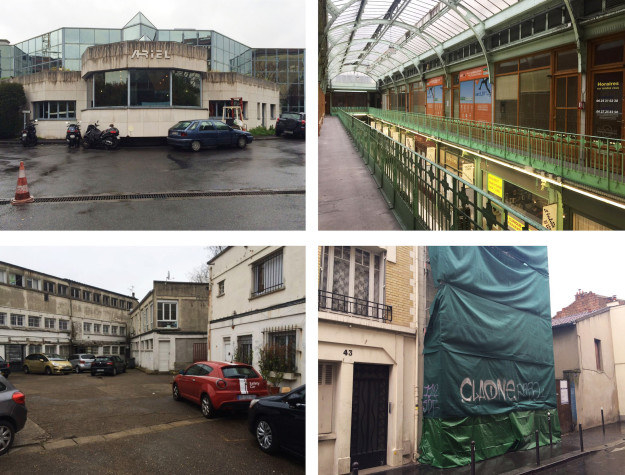
Cameron is now facing serious questions about why his party has continued to accept large donations from Lycamobile, reporting gifts of more than £870,000 since its suspicious cash movements were brought to light. The UK prime minister vowed to crack down on money laundering and offshore tax avoidance at the global anti-corruption summit in London last month, promising to “send a clear message to the corrupt that there is no home for them here”.
BuzzFeed News has reviewed evidence gathered by French investigators, spoken to sources close to the inquiry, and conducted a forensic analysis of voluminous corporate filings that paint an extraordinary picture of the questionable business practices of the Conservatives' biggest donor. It can today be revealed that:
Investigators say Lycamobile’s French arm received €75 million over nine months last year from the “shell” companies suspected of being fronts for laundering money. The funds were allegedly transferred into Lyca’s offshore network via a bank account in London.
French investigators suspect Lycamobile is selling its prepaid calling cards on the black market in Paris for cash, and is then using a “a vast system of false billing” to invoice fake companies for the sales in order to conceal other illicit payments.
Lycamobile’s own auditors declared over the past two years that they could not account for a total of £646 million that moved through ten companies in its complex corporate network.
Lyca was previously indicted for “serious organised money laundering” in France after agents of the company were found to have moved around €36 million in cash over the border into Germany without declaring it to customs in 2006. Allirajah vehemently denied the charges, and the prosecution was dropped in 2010 after a lengthy investigation. But French investigators are now re-examining the archived case files in light of their fresh probe.
Tax investigators at HMRC are scrutinising Lycamobile's finances after being passed information by Britain's National Crime Agency last year.
Lycamobile is the world’s largest mobile virtual network operator, buying international airtime in bulk from the main networks and selling it to millions of customers around the world on inexpensive prepaid calling cards. It has reported an annual turnover of €1.5 billion and pools its revenues in the UK and Ireland, but it has legally avoided corporation tax for years by moving money to the tax haven of Madeira. The group has repeatedly been criticised by its own auditors for its failure to account properly for the flow of money through its global network of more than 60 companies.
The company’s practice of depositing up to £1 million a week in cash-stuffed rucksacks at scattered Post Office branches was described as “deeply suspicious” and “worryingly characteristic of money laundering” by Britain’s former director of public prosecutions, Lord MacDonald, who called for a “serious investigation” after the bag drops were caught on film last year. BuzzFeed News also revealed that police in Sri Lanka are investigating allegations that the country’s deposed president Mahinda Rajapaksa laundered millions of dollars through the telecoms giant’s offshore empire. Lycamobile has always insisted that its business is wholly above board and said that the cash drops caught on film last year were just "day to day banking" of legitimate takings from the sale of its international calling cards.
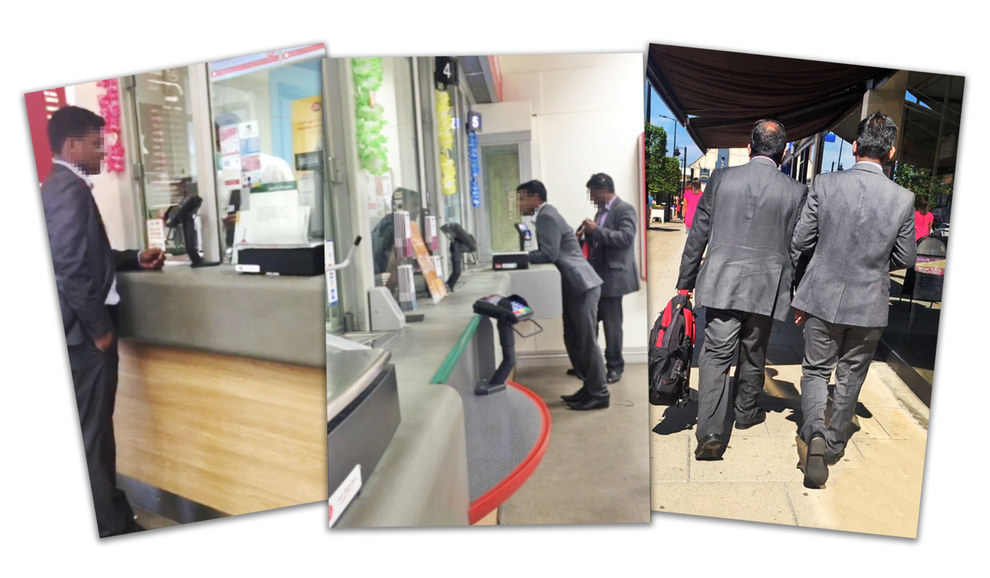
Labour wrote to the Conservatives demanding that the party freeze all donations from Lycamobile while its finances were properly investigated following the revelations, but the letter was ignored.
However, investigators at the French government’s anti-money-laundering unit began probing Lycamobile’s accounts after BuzzFeed News published its investigation last October. They passed a secret intelligence file to prosecutors at the Parquet National Financier (PNF), who opened an official judicial investigation in January. Now, a source close to the investigation says that prosecutors suspect they may have uncovered a “huge European money-laundering system”.
The charges were confirmed in a statement from the PNF sent to BuzzFeed News on Friday.
Statement from France's Parquet National Financier on 17 June 2016
"On Wednesday and Thursday, 19 people suspected of being involved in a money-laundering system implicating Lycamobile and Lycamobile Services were arrested. The arrests were part of a Paris judicial investigation into money laundering and VAT fraud. Several places in Paris and its outskirts were raided and police seized about 130,000 euros in cash and 850,000 euros from bank accounts. Nine people were brought in front of a judge on Friday and charged with money laundering among other things, and eight were released on bail while one man was remanded in custody. The charges relate to money laundering of at least 17 million euros and VAT fraud of several million euros."
The story of how the French authorities closed in on alleged financial crimes by the biggest donor to the governing party of the UK can today be revealed.
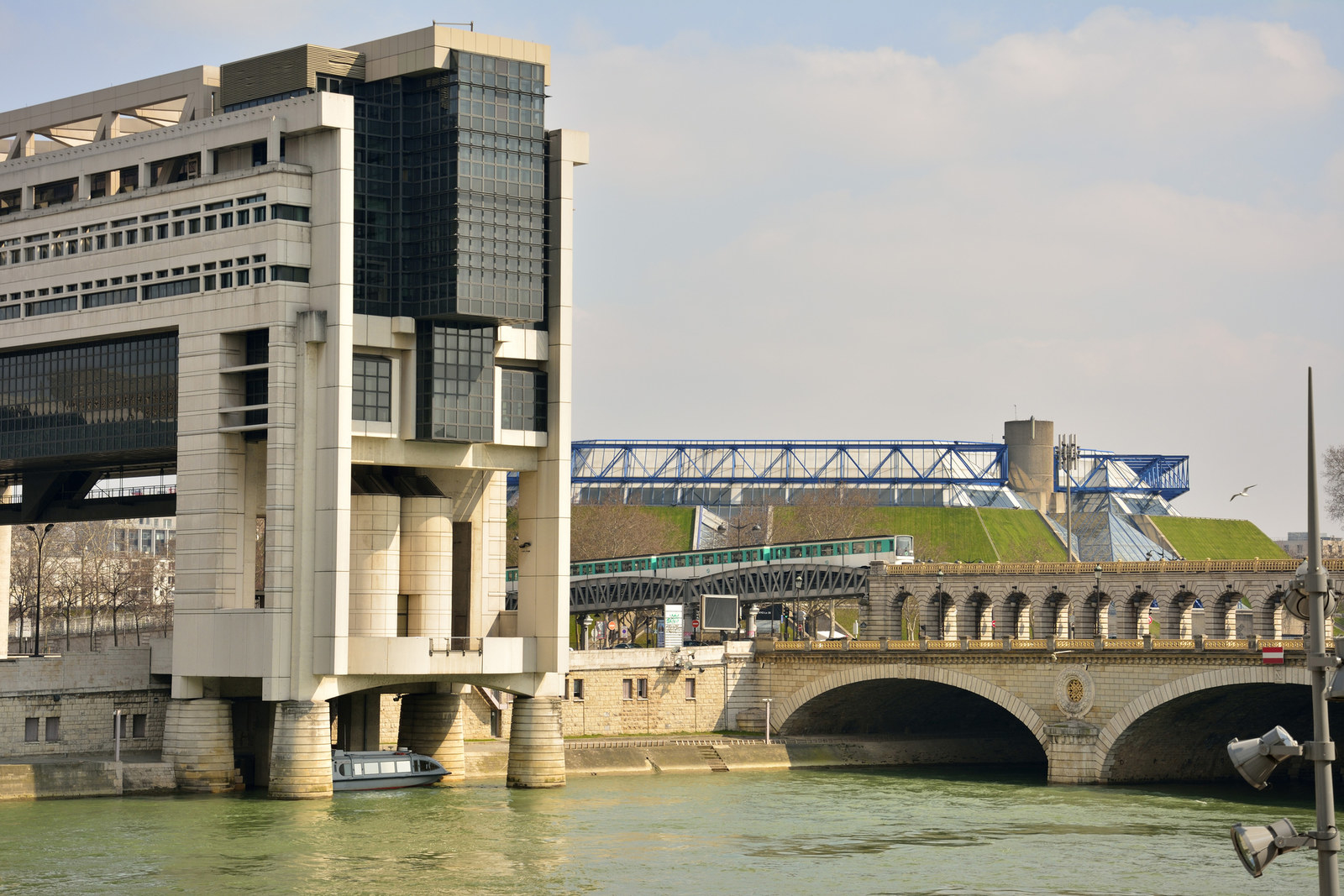
In the French Finance Ministry’s sprawling modern complex, jutting out on stilts over the green waters of the Seine, is an elite unit of secretive intelligence analysts who form the country’s first line of defence against corporate corruption. This is the arm of government tasked with detecting money laundering and terrorist financing on French soil. Its experts investigate intelligence from a variety of sources – including whistleblowers and suspicious activity reports from the country’s financial institutions – and refer any evidence of criminal activity to prosecutors.
Last autumn, after BuzzFeed News published evidence of Lycamobile’s suspicious cash drops in London, the unit began examining the group’s French accounts, and quickly spotted a curious trend. While one of its two French entities – Lycamobile Sarl – appeared to be doing legitimate business with established telecoms customers, the other – Lycamobile Services – had billed tens of millions of minutes of international airtime to what appeared to be a network of ghost companies.
Lycamobile Services had received payments totalling €75 million over a nine-month period last year from clients that analysts thought bore all the hallmarks of being shell companies – “recent creation, address with a virtual office or domestic dwelling, non-payment of VAT”. And the invoices these companies had submitted to their banks from the telecoms company seemed to the analysts to be “manifestly fake”.
“The total lack of economic logic implies the likely existence of a vast system of fake billing.”
The largest customer of Lycamobile Services, analysts found, had paid just under €8 million for almost 8 million international minutes, yet it had existed for just 15 months and was registered at an obscure address on the outskirts of Paris. By comparison, the major convenience store chain Relay France had bought 7.3 million minutes from Lyca’s main French company, Lycamobile Sarl, to sell from 941 outlets across the country. “It appears totally inconsistent that small companies that are not well known and moreover have no distribution network could have the capacity to purchase volumes comparable to Relay France,” the analysts noted. The hefty amounts of international minutes the tiny firms acquired “could never be used or consumed”, and therefore the payments received by Lycamobile Services were “disconnected from all economic reality”.
After reviewing the evidence compiled by the analysts, BuzzFeed News visited the 19 biggest customers of Lycamobile Services, all of which had paid more than €1 million for airtime, to see whether it was possible to buy a SIM or prepaid calling card from any of them. Reporters found that 18 of them showed no sign of trading at their registered addresses, and one was listed at a half-empty mobile phone shop that said it did not sell Lycamobile stock. That company has since been shut down. Eleven of the firms had traded for less than two years and several are now dissolved. Only six of them were set up as telecommunications firms on the French company registry, with the remainder claiming their main business was construction, electrical, IT, property rental, or transport, although some had later amended their entry to add the sale of international minutes to their declared activities.
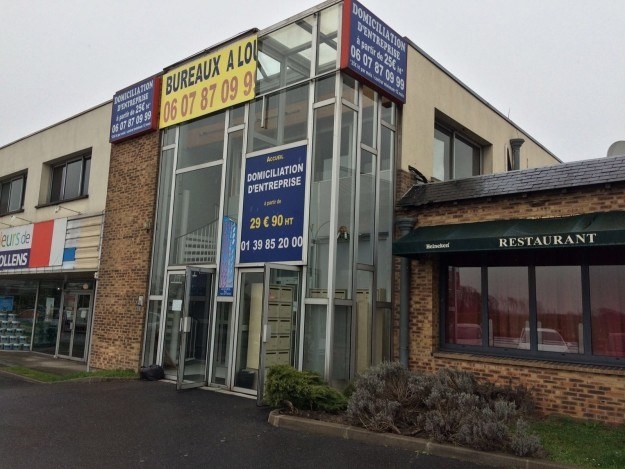
In a run-down retail park in the commune of Gonesse on the northeastern outskirts of Paris, reporters found the abandoned address of the biggest customer of Lycamobile Services – the one that allegedly paid almost €8 million for airtime. MSR-F.D.B. was dissolved in March after existing for just 15 months. It had listed its type of business on the corporate registry as “painting and glazing”, although the entry had been amended to add the sale of phone-cards to its declared activities. Its registered address turned out to be a serviced office, where a receptionist told reporters the company had packed up and left all of a sudden midway through its rental the previous year without completing the required paperwork. No phone cards had ever been on sale there, she said.
Another firm, Nego Tek, which analysts say paid Lycamobile Services more than €4 million, was listed as a wholesaler of household appliances. When reporters arrived at its serviced office address in a grubby glass and concrete structure just off the Paris ring road, the receptionist told them it had disappeared mid-way through its rental a few months ago. “One day they were here, the next they were gone,” she said. A property rental firm that paid €4 million for international airtime was listed on the company registry at an address that turned out to be a vacant building site, which neighbours said had never been a business premises. One electrical supplier that paid €1.5 million was registered inside a large Parisian social housing block, while staff at the serviced office address of another electrical firm that bought more than a million minutes said it had never existed there and they didn’t understand why they kept getting its mail.
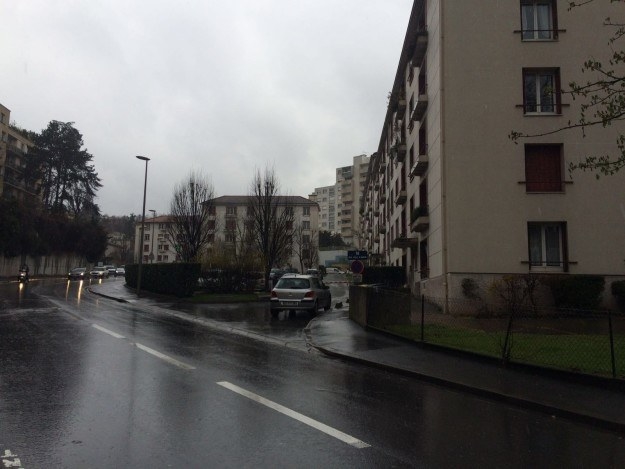
BuzzFeed News spoke to a former manager for Lyca in France who said he developed concerns about “fake billing” while working for the company several years ago. Speaking on condition of anonymity, he claimed that the company was using “fake third-party distributors, sometimes just a PO box”, that would bill the company every month for unrendered services. “It was a way to transfer money offshore and avoid paying tax,” he said. “The services would be intangible – consulting or IT services, for example. It would all be billed to London.”
After examining the payments into Lycamobile Services, analysts concluded that “the total lack of economic logic accruing to these transactions implies the likely existence of a vast system of fake billing”. They prepared a secret intelligence report concerning allegations that the telecoms company “gave its clients, in particular via Lycamobile Services, an illegal money-laundering service”.
“A number of clues lead to the hypothesis that the Lycamobile group gave its clients an illegal money laundering service.”
The report noted that Lyca was “a global group characterised by organisational complexity” and that its owner, Allirajah, had enjoyed “a lightning-fast ascent for a person who is presented as a Sri Lankan refugee who emigrated to London”. It also observed that Lycamobile had made large donations to the Conservative party in Britain.
The money received by Lycamobile Services from the “shell” companies had been paid into the accounts of the group’s main French business, Lycamobile Sarl, before being transferred offshore to Madeira via a Barclays bank account in London. The analysts hypothesised that Lycamobile could be funnelling the proceeds of crime through its complex corporate network to wash away any trace of its illicit origins before it was “returned to the instigators of the offence with commissions deducted”. They added: “Taking account of the fact that the group has subsidiaries in various countries, it would be feasible to effect international transfers to their ‘customers’ without raising suspicion.”
They concluded: “At this point, only a judicial enquiry would allow confirmation or otherwise of these hypotheses of fraud.”
The intelligence report arrived in the offices of the Parquet National Financier (PNF) on 7 January 2016. The specialist unit of financial prosecutors had been established two years before to get tough on offshore tax evasion and money laundering following a series of corruption scandals involving top politicians. The PNF has already made waves by pursuing high-stakes cases against the country’s former president Nicolas Sarkozy, the Qatar 2022 World Cup bid, the former head of world athletics Lamine Diack, and, most recently, Google. Soon after receiving the report, they launched an investigation into alleged money laundering by Lycamobile.
Sources close to the inquiry say that, early on, the prosecutors spent time studying surveillance footage gathered by BuzzFeed News last summer that showed three bagmen working for Lycamobile depositing rucksacks stuffed with as much as £240,000 twice a day at Post Offices scattered across London. They then sent police surveillance teams out to follow a group of cash collectors carrying out similar activities in Paris and appearing to sell Lyca’s calling cards on the black market without receipts. Tracking devices were installed on their cars, and their phones were wiretapped, as were those of Lyca executives at its French headquarters.
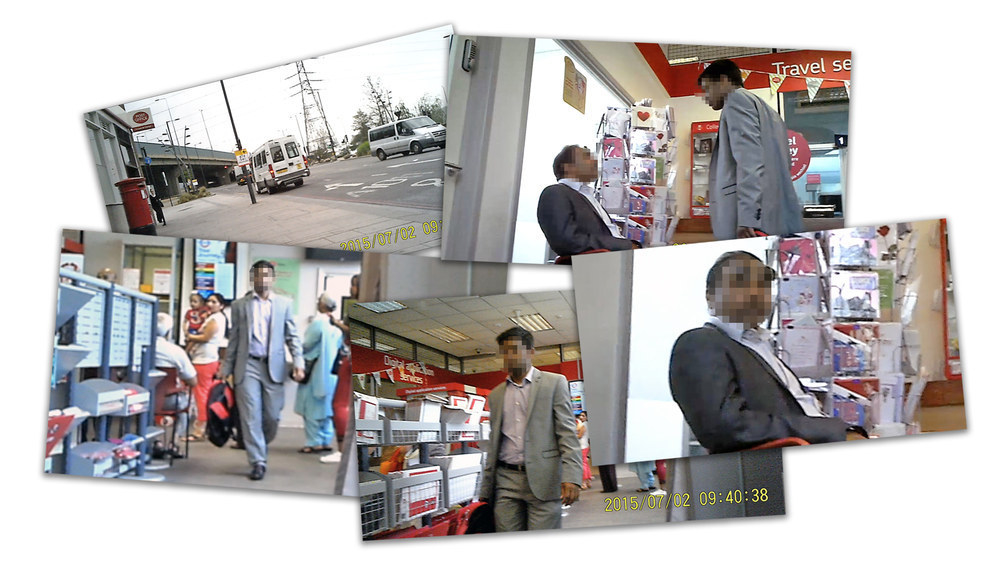
The couriers were found to be in contact with Alain Jochimek, the company’s general manager in France, and also with representatives of the company in London, sources close to the investigation told BuzzFeed News. Jochimek was arrested this week and was charged with money laundering and VAT fraud in court on Friday. He was released on €30,000 bail, and the sources say he denied all the charges, but he declined to comment when reporters visited his home in the affluent Paris suburb of Neuilly-sur-Seine on Saturday.
The Lycamobile employees were also in contact with a couple suspected of acting as a conduit to money-laundering networks, the sources said. Investigators discovered that the pair appeared to control most of the alleged shell companies that had funnelled millions into Lycamobile Services via what seemed to be puppet directors. The man and woman were both charged with the same offences as Jochimek on Friday, and the man was remanded in custody while the woman was released on bail with a bond of €8,000. The couple could not be reached for comment.
A group of Lycamobile’s cash couriers and officers of some of the alleged shell companies were also charged with money laundering and bailed out. The remaining 10 people who were arrested were released without charge, though sources say they remain under investigation.
Following the arrests, BuzzFeed News attempted to contact all directors of the 19 alleged shell companies accused of paying more than €1 million each into Lycamobile’s accounts, and visited the registered addresses of those listed in Paris. Almost all of the addresses were in run-down tower blocks or social housing units in deprived parts of the city, and more than half of the directors could not be found there – there was no sign of their names on resident listings or letterboxes and neighbours had never heard of them.
A man listed on French corporate records as a former director of Express Tel et Communications, the company that was registered at a run-down mobile phone shop, confirmed that he had worked at the company several years ago but said he knew nothing about the payments, although he had heard of Lycamobile. The other directors of that company could not be reached. Relatives of the director of another company that had made big payments for airtime said he was away for Ramadan. They said he had mentioned some work for Lycamobile in the past, then asked reporters if they were working with the police. At the apartment block of the director of another firm, relatives told reporters the man was no longer professionally active because of ill health and was not available to comment. None of the other directors of any of the companies could be reached.
The raids last week were not the first time French prosecutors have targeted Lycamobile. Investigators have exhumed the case files of a previous investigation into alleged money laundering that was launched in 2006 after the company was found transporting large amounts of cash over the border into Germany in the back of a van without declaring it to customs. After a lengthy inquiry, the charges were dropped in 2010 due to lack of evidence, and the existence of the case has never been previously reported. But the files are now being re-examined in light of the fresh investigation, and BuzzFeed News can reveal the details for the first time.
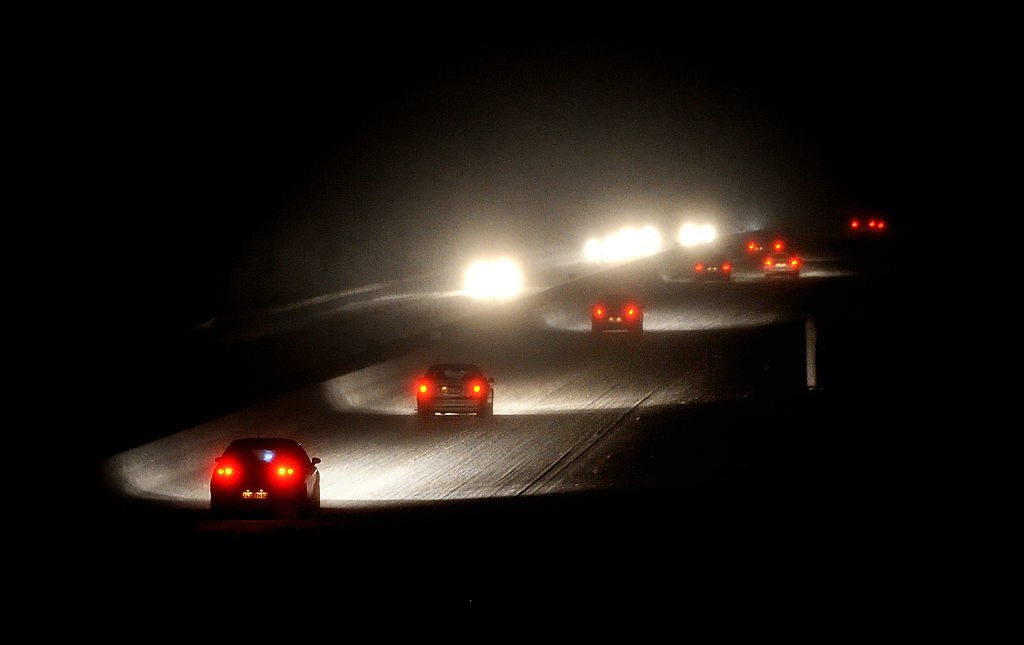
On a freezing February night in 2006, a small blue van approached the Ottmarsheim border crossing between northern France and southern Germany and was flagged down for a routine inspection. French customs officials pulled open the side door and found five bulging heat-sealed plastic sacks marked for collection in Paris and delivery to the Dutch city of Rotterdam. When they carried the bags into their inspection room and split them open on the table, they discovered €735,000 in rolls of €5, €10, €20, €50, and €100 notes, accompanied by bank slips bearing the account name “Lycatel”.
The drivers had been contracted by Lyca to drive the money to Holland, where it would be deposited at a bank and paid into the company’s UK accounts. But the huge haul of cash had not been declared at the border as required by law. Eventually, investigators calculated that the company had moved €36.6 million out of France over the previous year without any sort of customs declaration.
Customs officials were told that all the money came from the sale of Lyca calling cards by its then agent in France, Crest Telecom, and they noted that “neither VAT nor charges” had been paid on the cards. Police surveillance teams began following the salesmen working for Crest Telecom in Paris and photographed them picking up bundles of banknotes and plastic carrier bags full of cash from small, dilapidated addresses all over the city. They noted that the company appeared to sell Lyca’s stock “in cash and without invoices” and that customers had allegedly been forced to accept those conditions “under penalty of having the cards deactivated” if they refused.
In March 2006, prosecutors opened a file on Lyca “under suspicion of money laundering by organised crime, failure to make mandatory declarations, undeclared work, and threat of [stock] destruction”. The company’s owner, Allirajah, was charged by prosecutors with being “part of an organised gang” that had misappropriated revenues from sales in France “amounting annually to several tens of millions of euros and within a framework of an “opaque financial system so as to disguise the illicit source and destination”. Lyca’s then chief executive, Milind Kangle, was also questioned, along with the directors of Crest Telecom and its cash collectors in Paris, and the company was banned from doing business in France for the duration of the inquiry. Kangle insisted he had never been charged with any offence in an email to BuzzFeed News after this article was published.
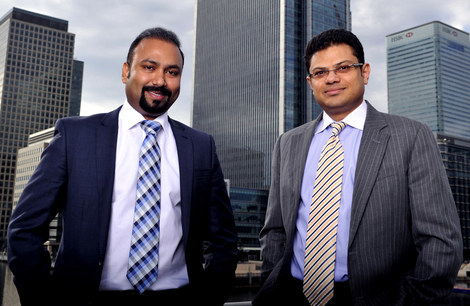
When Allirajah was interviewed in 2006, he told prosecutors Lyca had set up Crest Telecom as an intermediary to sell its stock in France and take a commission from the cash it collected from customers. He insisted that managers in London ensured all the sales of its stock were properly accounted for with invoices and delivery slips. No tax was due in France, he said, because “the prepaid cards were not sold by a French company” but were in fact supplied by Lycatel Ireland. Strict French money-laundering laws meant the country’s banks refused to accept cash deposits of the size Crest was collecting, so instead the money was picked up by a secure transit company three times a week with instructions to drive it to the Netherlands and pay it into Lyca’s UK accounts through a partner bank in Rotterdam.
The police told Allirajah that both the wholesalers who bought Lyca’s stock and the Crest employees who sold it had disputed his claim that all the sales had been properly accounted for. “How can it be that the group of wholesalers we have interviewed state they have not signed the delivery slips and they have never received an invoice?” an officer asked. “How can it be that most of the salesmen from Crest Telecom say the same things as the wholesalers, namely that they are not given either delivery slips or invoices?”
But Allirajah was adamant. “That’s completely false. They have lied,” he said. And he strongly denied claims that customers were pressured into paying in cash, insisting: “It’s the wholesalers’ choice, we have never told them that we will not accept cheques or transfers.”
The investigators made an intriguing discovery during the probe. The month before the customs check, they were told, executives from Lyca’s London headquarters had “intervened by breaking into the Crest Telecom offices to seize its hard drives and folders”.
When Allirajah was questioned about this, he responded that an “audit” had been arranged following a tipoff that money was being embezzled by Crest employees, and the managers from London had simply asked for copies of the company’s computers. “As far as I know they didn’t break anything,” he added. But police interrogators stated that the alleged break-in was “not an audit but a real raid” and said both managers of Crest Telecom had told them the seized hard drives had been “cleaned” and “the English had given instructions not to record on the mainframe but only on the detachable USB-type devices”.
“I told them something is going wrong in the accounting system. You can’t have so much cash and not declare it to customs.”
The former Lyca manager who spoke to BuzzFeed News said he had begun raising concerns about Lyca’s financial practices in France with Allirajah and Kangle before the 2006 customs search. “I told them that something is going wrong in the accounting system,” he said. “I said that is not the way do it because you can’t have so much cash and not declare it to customs.” Kangle has since denied that the manager had raised any concerns with him.
The prosecutors also raised concerns with their British counterparts about the integrity of Lyca’s financial record-keeping in 2007. There is a reference in one document to a memo sent to the British authorities setting out “anomalies … by which the police called into question the veracity of the Lycatel invoices produced”.
Over the course of the investigation, Lyca handed over reams of invoices to justify the sums of cash it had been found moving over the border, and by the the end of 2010, prosecutors had amassed dozens of boxes of paperwork. But after four years, they concluded that they did not have enough evidence to support the charges and applied to have the case dismissed. Their application acknowledged that “some areas remain unclear”, certain key witnesses had “disappeared” or been unable to communicate in French, and there had been “clashes among some of the witnesses on whether or not invoices were submitted”. But overall they concluded: “Evidence uncovered by enquiries does not allow sufficient certainty as to any offences committed in respect of the network of prepaid card sales involving Lycatel and Crest Telecom save for failure to make the required declarations.”
Though prosecutors believed that customs offences had been committed, they said it was not possible to conclusively establish who was to blame, because “the various speakers all refuted any responsibility for failure to make the required declarations”. The charges were dismissed in December 2010, and the case files were locked away in the vaults of French justice without any details of the investigation becoming public.
The boxes of evidence have now been recovered from the archives and are being re-examined.
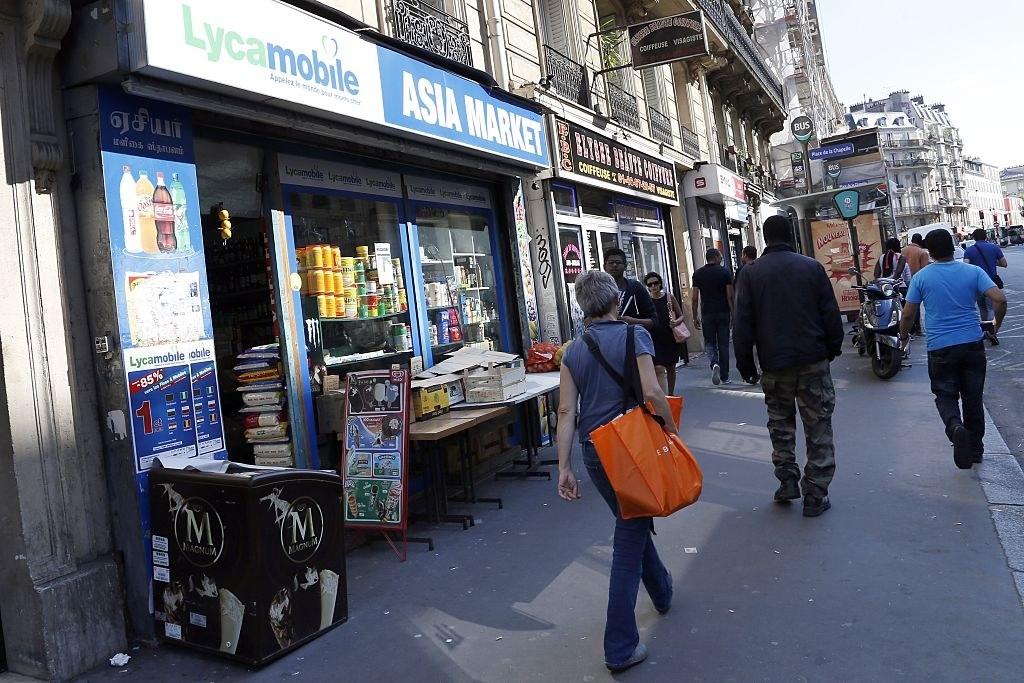
In the years between the two investigations, Lycamobile has significantly expanded its business. The group’s annual revenues doubled to more than € 1 billion in the two years after the first prosecution was shelved. By 2013, it was boasting that a new user joined its customer base of 30 million callers every two seconds and its cards were on sale at a million shops around the world.
Lycamobile also began a concerted effort to gain access to the corridors of power and influence in the UK. The company made its first donation to David Cameron’s Conservative party the year after the investigation was shut down and is now its biggest current benefactor.
In addition to dining privately with the prime minister as part of the Leader’s Group of top donors, Allirajah has been a guest at the Conservatives’ highly exclusive Black and White winter party, where he spent £210,000 on a bronze bust of Margaret Thatcher in one of the highest bids of the night last year.
He has also energetically courted Boris Johnson, bankrolling his campaign for re-election as mayor of London in 2012, giving him use of Lyca’s Canary Wharf offices to conduct telephone canvassing sessions on at least five occasions and showering the Tory politician with champagne, flowers, and gift hampers, according to the official mayoral register of gifts and hospitality. Johnson has responded to Allirajah’s overtures warmly, hailing Lycamobile publicly as a “wonderful business” and speaking at several big company events.
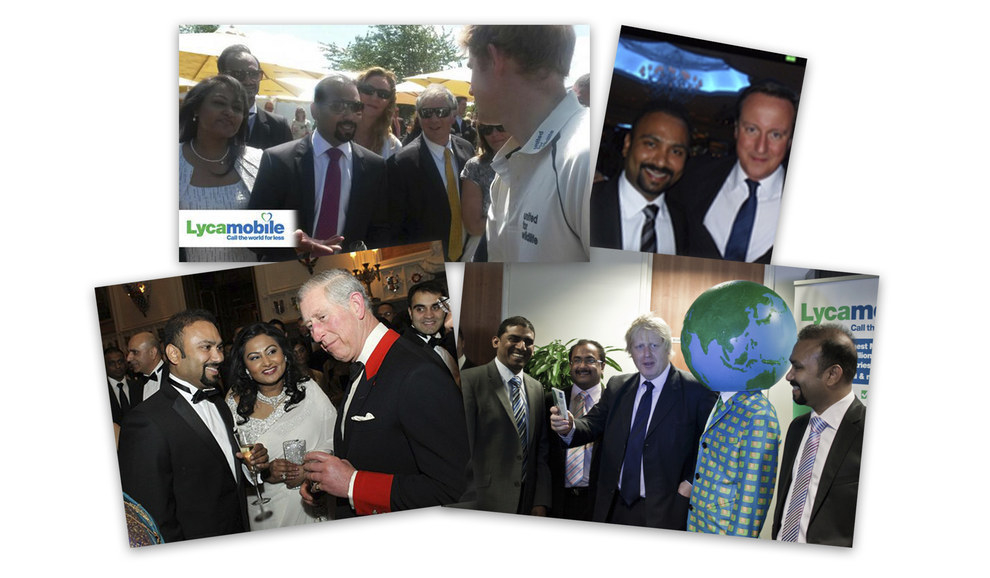
Allirajah’s efforts to endear himself to the British establishment did not end there. The tycoon also enjoyed royal hospitality at Windsor Castle after donating £1 million to Prince Charles’ British Asian Trust in 2012, and he handed the University of Cambridge £150,000 for Sri Lankan language and public health projects.
At the same time, the company has come under increasing scrutiny over its chaotic finances. An analysis of its corporate filings by BuzzFeed News has revealed that over the past two years its auditor, KPMG, has flagged debt movements totalling £646 million across ten Lyca entities for which “managers had not provided all the information and explanations we consider necessary for the purposes of our audit”.
In the same period, regulators in the UK and Ireland have threatened to strike off 16 Lyca entities for failing to file their accounts on time, and its main holding company has failed to comply with the legal requirement to produce consolidated accounts showing a complete picture of the finances across the whole group.
British tax authorities are scrutinising Lyca’s finances after information about its cash movements was passed to investigators by Britain's National Crime Agency last year. An spokesman for the NCA confirmed that the agency had “passed relevant information in respect of Lycamobile to HMRC,” adding: “When considering material for criminal investigation, sometimes it is most appropriate for the NCA to take action itself. Sometimes it is more appropriate for action by another agency.” HMRC refused to comment.
Lyca's holding company has set aside £9.5 million for possible fines and unpaid taxes in its latest accounts. Its main UK company declared a tax liability of £1.2 million in 2014 after paying no tax at all for five years and last year it declared just over £2 million. In Belgium, the group owes €1.5 million to authorities in penalties and unpaid VAT.
Yet throughout the repeated warnings by Lyca’s auditors, its skirmishes with European tax authorities, and the revelation of its “deeply suspicious” cash movements, the Conservatives have continued taking the company’s money. The party has insisted that all donations undergo strict compliance checks and are lawfully declared to the Electoral Commission. But the investigation by the French authorities raises urgent questions about the legitimacy of the funds the Tory government has accepted from its most generous benefactor.
UPDATE
This article has been updated to reflect responses received after publication from Lycamobile.




